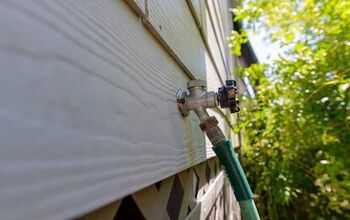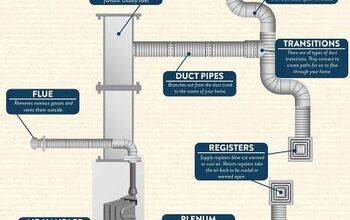Can A Contractor Put A Lien On My House With No Contract?

There’s no denying that one of the best parts of being a homeowner is making the space your own. While just about anyone can paint the walls or decorate how they desire, sometimes you need to hire a professional.
When you hire an expert to get a job done for you, it’s always a good idea to have a contract. If you hire a contractor without a written contract, there’s the possibility of a lien being put on your home.
Whether or not a contractor can put lien on your house with no contract depends on your local state laws. In most states, it is legal for contractors to file a lien without a contract. Without a written contract, the contractors may work with just a verbal agreement, which may not hold up in court.
If a lien is put on your house by someone you hired, it means you can’t sell, refinance, or transfer a clear title of ownership to your home. This can be incredibly inconvenient and can wreak havoc on your finances.
Who Can Put a Lien on Your House?
Since a lien’s purpose is to ensure contractors get paid, they’re the most likely ones to put one on your home. Legally, contractors, suppliers, vendors, and subcontractors could do this.
This can happen if you refuse to pay them for the work they’ve completed. If they get materials from a supplier and don’t pay for them, the supplier can come after you. You could lose your home if a lien goes through, which is why it’s important to avoid one at all costs.
How Do I Prevent a Lien on My House?
So, what can you do to prevent a lien on your home when hiring a contractor? Sometimes contractors do annoying things like leaving equipment on your property. Thankfully, there are a few things you can do to protect you and your property.
Step 1: Stay Organized
It’s essential to have a list of all of the subcontractors, material suppliers, and companies you’re working with. Ask the contractor for a written list of their supplies, along with proof that everyone has been paid. Doing this before releasing your final payment prevents you from being held liable.
Step 2: Release of a Lien
Speaking of making your final payment to your contractor, ask for a lien’s release before doing so. You could also get an affidavit or a partial release of lien with an affidavit. This will show that the contractor has paid everyone.
It can also showcase if anyone is still owed money with the exact amounts. If you plan on paying laborers and subtractors directly, it’s crucial to get a release of lien.
Step 3: Get a Written Agreement
The best thing you can do to avoid a lien is to have a written agreement or contract. Even if your state doesn’t require one, it’s best to get one for any projects, additions, or discussions between you and the contractor.
It’s important to know that the contract requirements vary from one state to another. Make sure the contract is extremely clear and that it includes every detail. You can have an attorney review the contract beforehand to make sure it’s right as rain.
Step 4: Be Happy With the Work
Lastly, you don’t want to make the final payment or sign a final release until the work is completed. Not only that, you need to be happy with the final product. Chances are, you’re spending a pretty penny to remodel, and you want to be left with what you wanted in the first place.
What is a “No Lien” Clause?
In a construction contract, a “no lien clause” forces a contractor (or subcontractor) to relinquish his/her rights prior to performing the work and/or providing project materials. In other words, the contractor promises that they will not lien the project in the event of non-payment.
A standard “no lien clause” may read like this:
“As a condition of Owner entering into this Contract with Contractor, Contractor agrees that it shall not assert rights to or claim a lien, or encumbrance of any type or kind, including any mechanic’s lien on any portion of the land, buildings, equipment, fixtures, or materials that constitute or form a part of the Project.”
These clauses work to the benefit of the owner, as the contractor forfeits one of their most powerful rights. The contractor agrees to do the work without the security of a potential mechanic’s lien, meaning they are exposed to an increased risk of non-payment for the project.
Though, it’s worth mentioning that these agreements are not enforceable in some states. In other words, in many states, a “no lien clause” will have no impact on a contractor’s ability to lien a project.
What if a Contractor Puts a Lien on My House?
If you’ve already found yourself in the situation where there’s a lien on your house, it can be incredibly frightening. Here’s what you can do to fight a false lien if a contractor has already served one on your home:
Check With a Construction Lawyer
The first thing I’d suggest anyone does in this situation is to have a lawyer check things out. Contractors have to follow precise procedures in order for a lien to be considered valid. It’s not uncommon for them to miss something, ultimately deeming the lien as invalid.
Negotiate with the Contractor
Sometimes, the easiest, and also most common, way to remove a lien from a property is to simply negotiate with the contractor who filed it. Unfortunately, this will typically involve paying the contractor money that he or she may or may not be entitled to.
Try to think of innovative ways to negotiate. For example, maybe the contractor will accept less money in exchange for a quick payment. Or, perhaps the contractor will let you pay them in installments. Or, maybe they will agree to performing additional work, including updates to the existing work, if you promise to pay them.
Oftentimes, contractors would rather negotiate with you than get caught up in liens and litigation, which are generally very time-consuming. Then, once you reach a settlement, it’s pretty simple and quick to release the lien.
Take Legal Action
If you feel like the lien was wrongfully put on your home, you can take legal action. It’s good to keep in mind that this will cost you anywhere from $5,000 to $15,000. When your house is on the line, the price can be well worth it.
If you’ve already paid the contractor in full, you can sue them to recover any losses from the subcontractor’s lien. Then, file a complaint with the state contractor licensing board. An attorney will charge you around $1,000 to review the lien’s validity.
How Location Plays a Part in Non-Contract Liens
Lien laws vary from state to state. It’s important to know the contractor’s laws where you live to know what your contract requires. Since it can be complicated and hard to keep track, here’s what you can expect from your state.
States Where No Written Contract is Required
Contractors and suppliers can file a lien in the states below, despite not having a written contract. If you’re working off of a verbal agreement, they could still file a lien against your property.
Even though these states allow folks to work without a contract, it’s always good to have one in writing. Documentation is essential when getting any part of your home remodeled. In court, it’s often more important to have things documented than not.
- Oregon
- Montana
- California
- Connecticut
- Washington
- Idaho
- New Mexico
- Arizona
- Minnesota
- Iowa
- Kansas
- North Dakota
- Wyoming
- Nebraska
- Oklahoma
- Wisconsin
- Illinois
- Arkansas
- Louisiana
- Michigan
- Maine
- Florida
- Alabama
- Mississippi
- North Carolina
- Tennessee
- Vermont
- Pennsylvania
- Maryland
- Ohio
- West Virginia
- Rhode Island
States Where Written Contracts Are Required
Next, these states require a written contract between the individual requesting work and the contractor. Without one, they cannot secure lien rights.
- Texas*
- Georgia
- Kentucky
- New York*
- New Jersey
- Delaware
- Massachusetts
*In New York, if there isn’t a written contract for a home project while hiring a professional, it may block the ability to enforce a lien.
*In Texas, written contracts are needed for all claims for a lien against a residential project. Everything needs to be in writing, including permits, no matter the job you’re working on.
States With Specific Lien Laws
A handful of states make it incredibly difficult to find answers when it comes to lien legalities. Oral contracts seem to be valid in nearly every state, with the exception of the section above. But depending on who you’re working with, there might not be defined answers.
If you live in one of the states below and are confused, contact a lawyer. They’ll be able to accurately answer your questions about your specific situation. Remember that getting served a lien can be expensive, and it’s best to be safe than sorry.
- South Dakota
- Utah
- New Hampshire
- South Carolina
- Virginia
States That Allow Exceptions For Verbal Agreements
The United States has Arizona, Colorado, and Indiana that only require written contracts sometimes. Since it can be hard to know when you’ll need one, it’s best to always get a contract.
Some of the factors involve the time being spent on the project, the value of work being performed, and the type of work. Arizona gets even more complicated with this, not always being the case, which is why it’s good to have an attorney on hand.
- Indiana
- Arizona (Sometimes)
- Colorado
Related Questions
Can a contractor sue me without a signed contract?
If there’s a breach of contract, a contractor could sue you even without a written contract. The opposite could be said, and you could sue the contractor without a contract. Just like anything else in terms of legality, oral contracts can make it hard to win a case.
How do I protect against a contractor lien?
The easiest way you can prevent liens is to make sure you’re paying people with joint checks. Having both parties endorse the checks can keep everything in check. You’ll also want to compare the contractor’s bills to the schedule of payment of your contract.
Can an unlicensed contractor put a lien on your house?
It depends on what state you live in. For example, if you live in Washington or California, the laws are extremely strict with unlicensed contractors. They have no recovery rights at all, meaning they can’t file a lien, or anything else.

Kirstin is a passionate writer who loves helping people learn new things when it comes to home improvement. When she's not behind a keyboard, she enjoys DIY projects, crafts, spending time with her pets, and making videos. She hopes that with all she writes, someone is finding a solution to their home improvement needs.
More by Kirstin Harrington














![10 Best Electric Pressure Washers – [2022 Reviews & Guide]](https://cdn-fastly.upgradedhome.com/media/2023/07/31/9070600/10-best-electric-pressure-washers-2022-reviews-guide.jpg?size=350x220)












